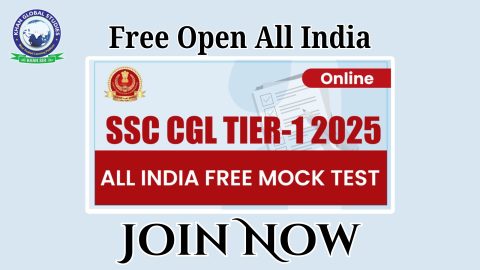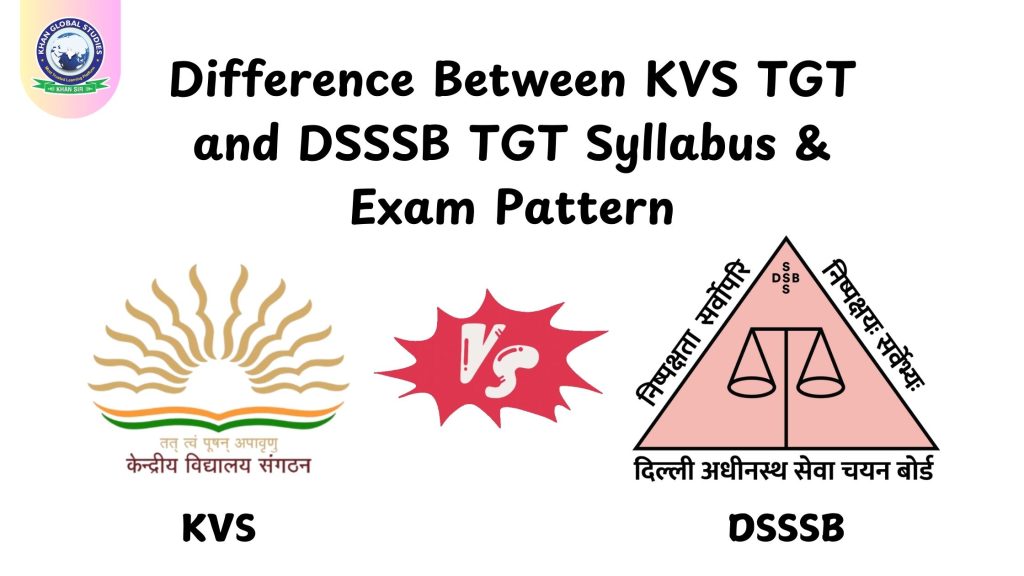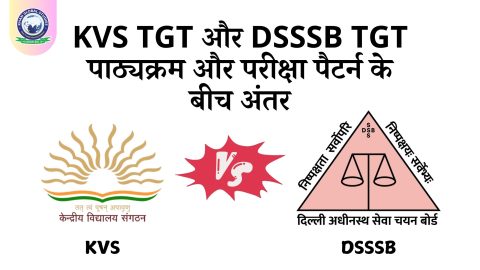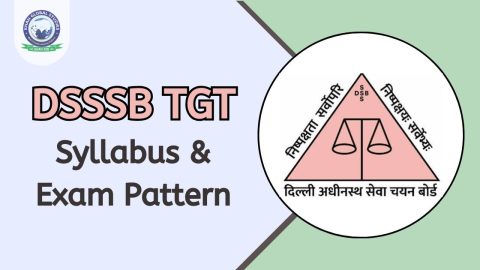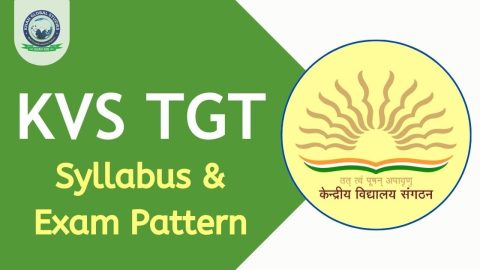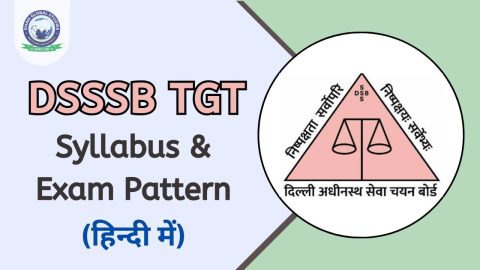In India, teaching positions in government schools are highly coveted, and the two most prominent teaching job opportunities are offered by the Kendriya Vidyalaya Sangathan (KVS) and the Delhi Subordinate Services Selection Board (DSSSB). For those looking to become a Trained Graduate Teacher (TGT), it is important to understand the difference between the KVS TGT syllabus and the DSSSB TGT syllabus to ensure better preparation for the exams. While both aim to select qualified teachers, the course structure, exam pattern, and teaching approach differ.
In this article, we will comprehensively explore these differences to guide candidates in their preparation.
Overview of KVS TGT and DSSSB TGT
KVS TGT (Kendriya Vidyalaya Sangathan Trained Graduate Teacher)
The Kendriya Vidyalaya Sangathan (KVS) operates a network of central government schools across India. It recruits Trained Graduate Teachers (TGTs) to teach students from classes VI to X. The KVS syllabus and exam are designed to evaluate the teaching aptitude of the candidates, their subject knowledge, and their ability to deal with national-level education standards.
DSSSB TGT (Delhi Subordinate Services Selection Board Trained Graduate Teacher)
DSSSB conducts recruitment exams for various posts under the Delhi government, including TGT teachers for Delhi government schools. The DSSSB TGT syllabus focuses more on region-specific requirements, and the exam pattern is designed for teaching in Delhi schools, making it somewhat different from the KVS exam.
Key Differences in Syllabus
1. Exam Pattern and Structure
KVS TGT Exam Pattern
The KVS TGT exam consists of 150 questions, divided into various sections:
- General English (10 questions)
- General Hindi (10 questions)
- General Knowledge and Current Affairs (40 questions)
- Reasoning Ability (40 questions)
- Computer Literacy (10 questions)
- Pedagogy (40 questions)
Each question carries one mark, and the exam duration is 150 minutes. There is no negative marking in KVS, which makes it more favourable for candidates in terms of giving risk-free answers.
DSSSB TGT Exam Pattern
The DSSSB TGT exam consists of 200 questions:
- General Awareness (20 questions)
- General Intelligence and Reasoning Ability (20 questions)
- Arithmetic and Numerical Ability (20 questions)
- Hindi Language and Comprehension (20 questions)
- English Language and Comprehension (20 questions)
- Teaching Methodology (Subject-Specific) (100 questions)
1 mark is awarded for each correct answer, but unlike KVS, there is a negative marking with a penalty of 0.25 marks for each wrong answer. The duration of the exam is 2 hours.
2. Focus on Pedagogy and Subject Knowledge
KVS TGT Syllabus
KVS lays great emphasis on teaching methodology, focusing on the pedagogical knowledge of the candidate. The pedagogy section in KVS consists of 40 questions, and covers the following topics:
- Child development and pedagogical concepts
- Inclusive education
- Methods of learning and assessment
- Education technology
KVS aims to select teachers who are capable of teaching diverse students in a multi-cultural environment. Hence, it is essential to focus on inclusive education and child-centred learning.
DSSSB TGT Syllabus
The DSSSB TGT syllabus focuses more on subject-specific knowledge. Out of the 200 questions, 100 questions are specifically dedicated to the subject the candidate wants to teach (such as English, Maths, Science or Social Science). Additionally, the Teaching Methodology section assesses the candidate’s understanding of:
- Principles of Teaching
- Educational Psychology
- Evaluation and Assessment Techniques
DSSSB emphasizes on strong subject specialization and a localized approach to teaching in Delhi government schools, so the exam assesses how well the candidate can handle the subject matter and provide region-specific education.
3. Language Proficiency and Comprehension
KVS TGT Language Section
In the KVS TGT exam, language proficiency is assessed through General English and General Hindi sections, each of which has 10 questions. These sections test basic grammar, comprehension skills, and vocabulary. Although language proficiency is assessed, its importance is relatively less compared to teaching and general awareness.
DSSSB TGT Language Section
On the other hand, DSSSB gives more importance to language proficiency, with 20 questions each in Hindi Language and Comprehension and English Language and Comprehension. The focus is on evaluating the following abilities of the candidate:
- Understanding complex texts
- Correcting grammatical errors
- Understanding passages
- Demonstrating a strong command over the language
Since Delhi is a multilingual state, DSSSB expects teachers to have a strong command over both languages.
4. General Awareness and Reasoning
KVS TGT General Knowledge and Current Affairs
KVS lays significant emphasis on General Knowledge and Current Affairs, with 40 questions dedicated to this section. The syllabus includes the following topics:
- Current Events (National and International)
- History, Geography, Politics
- Environmental Studies
- Indian Economy
This section tests the candidate’s awareness of the global and national scenario, making KVS teachers well-versed in some subjects.
DSSSB TGT General Awareness
The DSSSB general awareness section consists of 20 questions, focusing on local and national events, history, and general science. The syllabus is less comprehensive than KVS, but the questions are designed to test a deep understanding of current affairs, especially as they relate to Delhi.
5. Computer Literacy
KVS TGT Computer Literacy
KVS has an entire section dedicated to computer literacy, with 10 questions, highlighting the importance of digital skills in today’s classrooms. Candidates are expected to know about the following:
- Basic computer operations
- MS Office tools
- Internet and email functions
DSSSB TGT Computer Section
DSSSB does not have a separate Computer Literacy section, however, candidates are expected to be familiar with the use of basic technology as part of their teaching methodology.
Conclusion
The difference between the KVS TGT syllabus and the DSSSB TGT syllabus is mainly in the focus areas. KVS emphasizes national-level education, pedagogical knowledge, and general awareness, while DSSSB is more region-specific, focusing on subject knowledge and language proficiency. Both exams require focused preparation, but the choice of exam depends on whether the candidate is interested in teaching in Kendriya Vidyalayas or Delhi Government schools.
To excel in either of the two, candidates need to understand the specific requirements, hone their subject expertise, and practice previous years’ question papers. With proper guidance and structured preparation, candidates can confidently appear for these exams and secure the TGT post in their desired institute.
